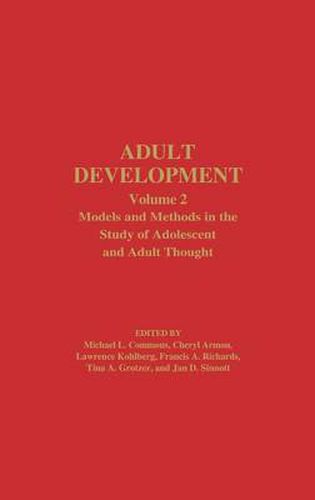Readings Newsletter
Become a Readings Member to make your shopping experience even easier.
Sign in or sign up for free!
You’re not far away from qualifying for FREE standard shipping within Australia
You’ve qualified for FREE standard shipping within Australia
The cart is loading…






This volume brings together the works of distinguished authors in the field of postformal-operational cognitive, social and perceptual development to examine the models and methodology used to investigate postformal thought. Divided into four parts, the volume begins by examining both Piagetian and nonstructural models of adult cognitive development, considering them in light of current research developments. Individual papers address models of equilibrium, knowledge, reflective judgement, ego-development, and consciousness. In part II, the contributors discuss the measurement and comparison of cognitive development in adults, exploring such topics as contruct validity and theories of adult development, the structural and developmental relations between formal and postformal capacities, and the relationship between Piagetian and Kohlbergian stages. The third section assesses the research and theory of adult reasoning in the moral domain, while the concluding chapter investigates critical evaluations of postformal research. Numerous tables and figures enhance the discussions.
$9.00 standard shipping within Australia
FREE standard shipping within Australia for orders over $100.00
Express & International shipping calculated at checkout
This volume brings together the works of distinguished authors in the field of postformal-operational cognitive, social and perceptual development to examine the models and methodology used to investigate postformal thought. Divided into four parts, the volume begins by examining both Piagetian and nonstructural models of adult cognitive development, considering them in light of current research developments. Individual papers address models of equilibrium, knowledge, reflective judgement, ego-development, and consciousness. In part II, the contributors discuss the measurement and comparison of cognitive development in adults, exploring such topics as contruct validity and theories of adult development, the structural and developmental relations between formal and postformal capacities, and the relationship between Piagetian and Kohlbergian stages. The third section assesses the research and theory of adult reasoning in the moral domain, while the concluding chapter investigates critical evaluations of postformal research. Numerous tables and figures enhance the discussions.